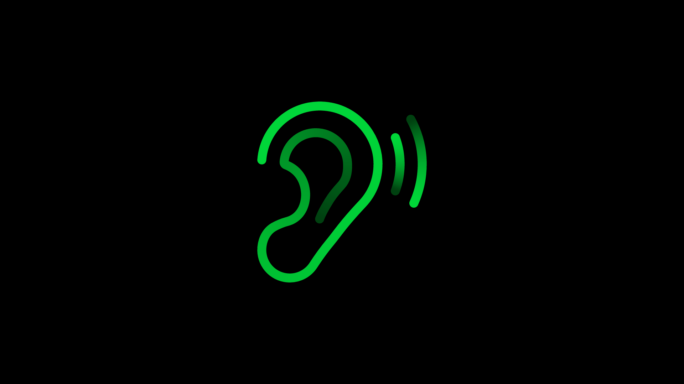Money Matters
Business bank account: Why small businesses should use one rather than a personal account
Learn why you should use a business bank account rather than using your personal account to manage your small business finances.

Many Irish high street banks offer business bank accounts. The same can be said of challenger banks such as N26.
Banks usually charge startups and established small businesses a monthly or annual fee for the service, although some offer a fee-free period for new customers.
In this article, we discuss what a business bank account is, and highlight whether getting one is right for your business.
We also discuss the benefits of using one for your business compared to using your personal bank account.
Here’s what we cover:
What is a business bank account?
How does a business account work?
Can I use my personal bank account for my business?
Benefits of using a business account
How to choose the right account for your business
What do you need to do to open a business bank account?
Final thoughts on business bank accounts
What is a business account?
A business account is a bank account used for your business transactions.
It shouldn’t be used for making personal finance transactions, such as paying your household utility bills or TV licence.
With the business account, you can make deposits and withdrawals, use a debit card for purchases, and apply for an overdraft.
Deepak Shukla, founder of Pearl Lemon PR, believes it’s important to separate your personal bank account from your business bank account if you’re a small business owner.
He says: “The most important part is that business owners are able to separate what they do in their business with what they do in their personal life from a financial perspective.
“When it comes to the end of year accounts and financial projections, you’ll need to access the activity that demonstrates the progress of your business separate from the activities in your personal life.
“So, it’s difficult for someone to project how much profit they made in one year if they also have to separate all of their personal holidays, expenses and home utility bills.
“Those kinds of expenses shouldn’t be mixed up with business expenses because it makes accounting easier and business projection clearer when there’s a separate account dedicated to business transactions.”
How does a business account work?
The account works similar to a personal bank account but the main difference is that it deals with the cash flow generated from your business.
It can be opened in the name of a business at any time, and with no monthly fees. You might also have access to 24/7 customer support if you open with a challenger bank.
By opening a business account, you can allow payments to be made and received in the name of the business.
However, a big difference between a personal bank account and a business account is that most banks will charge you per business transaction.
So you may have to pay a small fee every time you deposit cash, issue a cheque, set up direct debits and standing orders, or make a bank transfer.
Can I use my personal bank account for my business?
Depending on the nature of your business and how easy going your bank is, you can use your personal bank account.
Sole traders can use a personal current account for business transactions because Revenue treats their personal and business income as one.
For example, if you have set up a copywriting business, rather than a retail business.
However, most high street banks state in their terms and conditions that personal bank accounts can only be used for personal use and not for business.
Benefits of using a business account
There are many benefits of using a business account.
For example, you can keep track of what you are spending on your business, simplify tax returns and view deposits made in your business’ name.
You can appear more professional to customers and potential clients by allowing them to pay you in your business name rather than your personal name.
You can also cash in cheques made out to the business and build up your credit history, so it’s easier to apply for a business loan or credit card.
Some banks may offer business customers extra support, too – you can perhaps chat to their local relationship manager.
How to choose the right account for your business
Choosing the right account for your business can be a minefield, as there is so much choice, from the traditional high street banks to newer challenger banks and business banking apps.
In order to choose the right business account, you need to look closely at your business needs.
Have you just started your company? What is the size of your business?
Is your business more established? Are you a sole trader or running a limited company?
Start by comparing the different bank accounts that are available to you.
Look at whether the bank charges fees.
Is there a period of free business banking that you can make the most of? Will you be charged a fee for opening an account?
What’s the monthly account fee? How much will it cost for the likes of making electronic or cash payments in and out of your account?
There are also overdraft charges to consider too, both authorised and unauthorised.
Banks can also charge when international transactions take place, for example for non-euro card transactions.
Your best place to start when deciding what business bank account is right for you is to look at comparison websites, where your options are clearly laid out.
What do you need to do to open a business bank account?
In order to open a business account, your chosen bank will need to carry out credit and security checks.
You’ll likely need some (if not all) of the following too:
- Photo ID – passport, national identity photocard, driving licence
- Proof of your address – bank or credit card statement, for example, less than three months old
- Mortgage statement – less than 12 months old and not printed from the internet
- Letter or bill from a utility company – less than six months old.
Your chosen bank may also need to make the same checks if anyone else will be using the business bank account or if they have a significant share of your business.
Final thoughts on business bank accounts
It’s advisable to keep your business and personal finances separate.
Having a business account to manage your business finances will mean you avoid the issue of mixing up your monthly household expenditure with your business finances by doing everything via your personal account (and that will save you time when it comes to tax return time).
In addition, business banks accounts typically offer features not available to personal bank accounts such as tax calculators, invoice creation services and accounting software integrations.
Matthew Boyle, banking specialist at personal finance comparison site finder.com, adds: “By integrating a good accounting system, this will save you a large amount of time as it will enable you to quickly calculate how much you earn and what business expenses you have.
“There are many business accounts that have been tailored to suit the needs of small businesses and sole traders. It’s now much easier with digital-only business banking providers.
“These can be opened very quickly, without too much hassle or administration.
“There’s also the extra benefit of building up your business’s credit score [a separate score from your personal credit score].
“If ever you need to take out a business loan, then having a good business credit score will help.
“It’s also a good idea to check your bank’s terms and conditions as it may state that you shouldn’t use your personal account for business purposes.”







Ask the author a question or share your advice